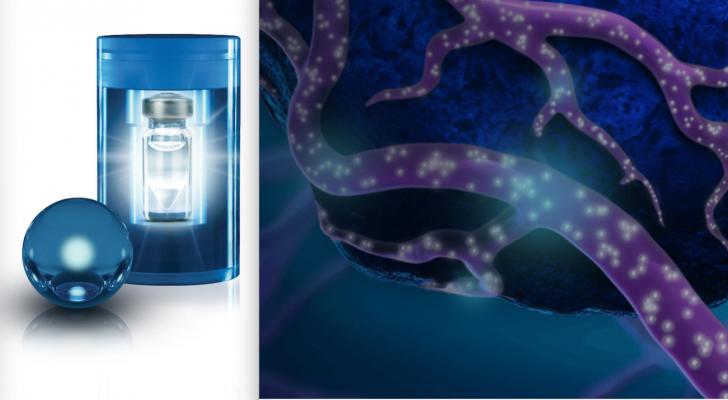
Boston Scientific's TheraSphere Y-90 Glass Microspheres enable selective internal radiation therapy (SIRT), or radioembolization, for hepatocellular carcinoma. This treats liver cancer with low toxicity using millions of microscopic glass beads containing radioactive yttrium (Y-90), delivered directly to liver tumors via catheter. The result in minimal radiation exposure to surrounding healthy tissue.
March 18, 2021 — The U.S. Food and Drug Administration (FDA) has cleared Boston Scientific's TheraSphere Y-90 Glass Microspheres, an interventional radiology therapy developed for the transcatheter treatment of patients with hepatocellular carcinoma (HCC).
The approval expands access to this life-prolonging radiation therapy for a greater number of patients, which has been used for about 20 years under a humanitarian device exemption (HDE). This FDA classification required institutional review board approval and limited the number of patients treated with the therapy per year. TheraSphere is now the only radioembolization technology indicated for the treatment of unresectable HCC in the U.S.
HCC is one of the most prevalent cancers in the world and the most common type of primary liver cancer, with more than half a million new global cases diagnosed annually.[1] The American Cancer Society estimates that approximately 32,000 new cases of HCC will be diagnosed in the U.S. in 2021.[2] It is most often treated through surgery, liver transplantation, chemotherapy or embolization, including both chemo-embolization and radio-embolization, which is also referred to as selective internal radiation therapy (SIRT).
TheraSphere treatment, a type of SIRT with low toxicity, is comprised of millions of microscopic glass beads containing radioactive yttrium (Y-90), which are delivered directly to liver tumors via catheter and result in minimal exposure to surrounding healthy tissue.
LEGACY Clinical Study Showed 100% Response Using Y-90 Microsphere Embolization
Approval of TheraSphere was based on results from the LEGACY study,[3] designed to evaluate the safety and efficacy of the therapy for the treatment of early and advanced HCC. The study analyzed data from 162 patients and met both primary endpoints of objective response rate and duration of response rate (72.2% at four weeks and 76.1% at six months, respectively). Data demonstrated 100% complete or partial patient response up to two TheraSphere treatments – disappearance of all lesions or >/= 30% decrease in target lesion diameter – and a 93% overall survival rate in patients with transplant or resection following treatment at three years.
"I am honored to have spearheaded the LEGACY trial in which we found that patients with early and advanced HCC exhibited very high response rates as well as clinically meaningful durations of response and survival, establishing TheraSphere as a standard treatment for this patient population," said Riad Salem, M.D., MBA, interventional radiologist at Northwestern Memorial Hospital and principal investigator of the LEGACY trial. "The trial results, which have been accepted for publication in Hepatology, produced one of the most comprehensive databases for TheraSphere, empowering physicians to make informed, data-driven decisions for their patients."
Treatment with TheraSphere does not require hospitalization and is typically performed as an outpatient procedure in as little as an hour, potentially alleviating pressure on healthcare systems in an increasingly complex care environment. Recognition of the benefits of SIRT – both to patients and hospitals – were reflected in recently issued guidance from the National Institute for Health and Care Excellence (NICE) when they recommended the use of TheraSphere for the treatment of patients with HCC through the National Health Service (NHS) in England, Wales and Northern Ireland.
"The FDA approval and the recent NICE recommendation will expand access to TheraSphere, which has demonstrated improvement in both survivability and quality of life through 20 years of clinical trials and real-world outcomes in the more than 70,000 patients globally," said Peter Pattison, president of interventional oncology, peripheral interventions, Boston Scientific. "We expect to continue to focus our efforts on bringing this treatment to more patients, both by planning a randomized trial to study the combination of TheraSphere and immunotherapy in patients with HCC not eligible for curative treatments, as well as further investigating the therapy for different cancer segments, including prostate and brain."
For more information: www.therasphere.com
References:


 February 04, 2026
February 04, 2026 









